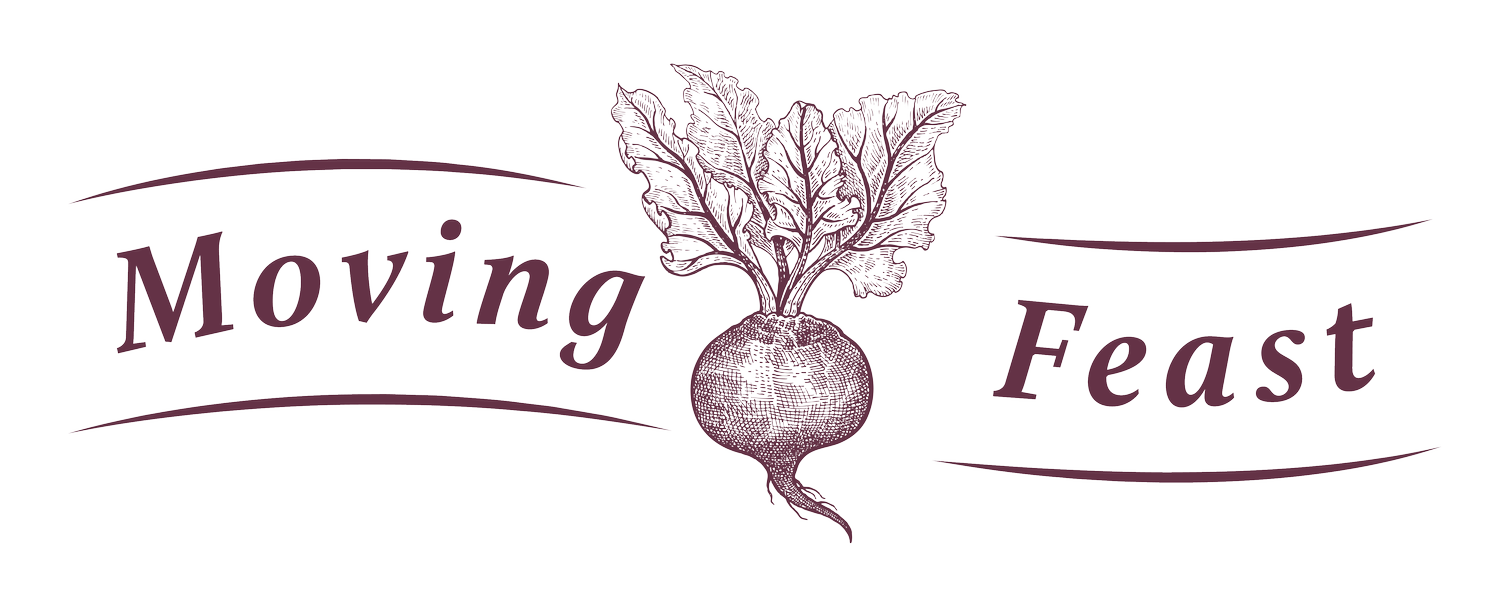How projects work
Projects are how we experiment with different parts of the food system to bring about change.
Moving Feast projects are designed with the mindset of innovation to create a different system, rather than innovation for improvement. This is critical to achieve the transformative, systems-level change we collectively seek.
One or more activities make up projects, and multiple projects respond to Challenges (see Our approach). Learnings and outcomes collectively build towards the goal of a connected, fair and regenerative food system.
We are establishing a process for onboarding Moving Feast projects, to be published here once systems are in place.
Who can do projects?
In theory, anyone keen to be part of collective action for transforming Victoria’s food system. But for now, primarily Moving Feast partners and collaborators.
Currently, Moving Feast partners are transitioning to the new innovation approach by aligning their current or planned projects to the five Challenges, and drawing on their existing funding and resources to run projects. This is a short-term transition – we need more sustainable and distributed funding and governance models to keep things moving forward.
Once we work out these models, we will be able to expand participation and welcome more projects and teams. We hope to eventually see projects initiated by grassroots groups, families and individuals. By hospitality businesses. By farmers. By schoolkids. And more.
What makes a Moving Feast project?
Moving Feast projects are not ‘business as usual’ partnerships. They are designed and run in ways that embody our values and principles, including:
Definition: clearly framed problem, hypotheses and activities, team and roles, resource distribution, measurement, timeline
Has a clear threaded through line to Challenge(s) e.g. Net Zero food
Money is distributed through Challenges to project teams, rather than pitching for money in competition with each other
Taking a highly participatory and place-based approach, including engagement with First Nations;
Acting locally, where small actions have larger ripple effects;
Amplifying voice and participation of lived experience communities;
Being transparent and accountable;
Drawing a clear line between project activities and goals to expected policy impacts, improved outcomes, and avoided costs to government;
Collaborations of diverse actors, voices and worldviews, with a mix of ‘unusual’ actors from sectors or disciplines less familiar to each other.
Roles and responsibilities
Getting the right kind of funding and governance in place will enable us to place people in key roles to make the Challenge-led approach happen.
Challenges and projects
Challenge Co-Leads: at least two partners per Challenge, who coordinate, negotiate and support projects to ensure they respond to the Challenge;
Project Team: a minimum of two people from different organisations who initiate, design and run projects, with support of Challenge Co-Leads, and Support and Operations roles as necessary.
Support
Centres of Excellence: “Brains Trust” of organisations or individuals providing support to Project teams and Challenge Co-Leads as needed e.g. business and strategic advice in the food system context, regenerative and participatory practice, and place-based approaches and safeguarding;
Critical Friends: academics, industry and allies with expertise in food systems (national, state, local), systems innovation and strategy, and regenerative and distributive futures;
Network Convenor: a ‘wraparound’ supporting role, who stewards relational, collaborative processes and looks after network relationship health.
Operations
Strategic Design Manager: core strategic design function pivotal to shaping Moving Feast’s role as a System Shifting Network for food system change;
Admin: onboarding projects, and keeping track of project status;
Measurement & Evaluation (M&E): measurement, impact and evaluation of Moving Feast activities, including project tracking in the the Wicked Lab Tool for Systemic Change;
Comms: newsletters, storytelling, coordinating co-authored publications, styleguides, website updates.
Funding to run projects
Currently, funding to run projects comes from existing partnerships and grants connected to Moving Feast partners and collaborators.
Moving forward, we are seeking to establish new funding and governance models, with an emphasis on systems investment for use across our network, and others working towards similar goals for food system transformation.
We envisage ‘pools’ of money assigned to the five Challenges. Challenge co-leads manage Challenge ‘pools’ and distribution of funds for projects and the activities within them. Funds would also be allocated to the supporting roles, resources and infrastructure making up the ecosystem: Challenge co-leads, Project teams, and Support and Operations.
One of the big potential differences from business-as-usual is that individual organisations would not need to write grants or competitively pitch for funds. Instead, Project teams would define projects together and negotiate for funds held in Challenge pools.
Note: Moving Feast wouldn’t expect to be a gatekeeper of funds, but rather put in place processes to aggregate work together via Challenges, that funding gets directed to.





